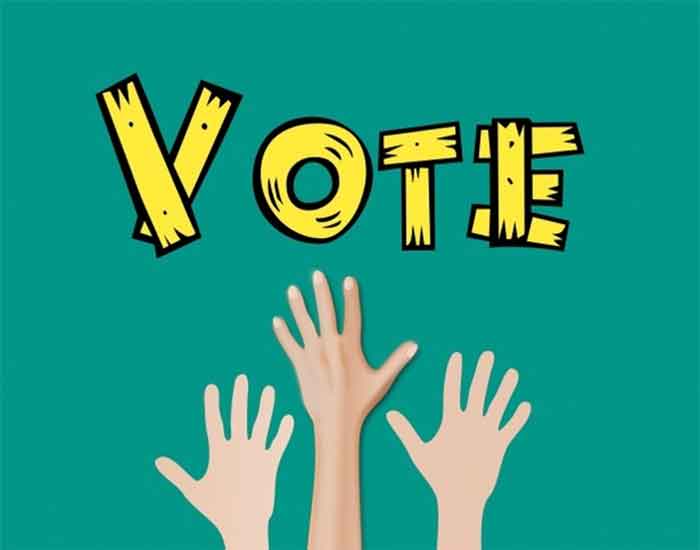
While value of a politically conscious and an educated person should be different from the value of an uneducated and unaware person, representatives of people must have good educational qualifications, political consciousness, expanded rationality and morality to represent masses in order to sustain the values of real Democracy.
Democracy derives its real meaning and strength from Jean Jacques Rousseau’s idea of popular sovereignty and from Abraham Lincoln’s doctrine that it is a government by the people, of the people and for the people. It is people who are sovereign and representatives formulate laws for people’s welfare and security. Hence, the political leaders representing people must have good educational qualifications, political consciousness, expanded rationality and morality to represent masses in a true sense. Even during ancient times, when the ideas of democracy and elections were not existing, higher benchmarks were still set for the rulers for governance of their subjects.
Qualities of Leaders
India’s spiritual masterpiece, Bhagavad Gita described leadership, dutifulness and self-realization are the qualities of a ruler. In the ‘Arthashastra’, author Chanakya also known as Kautilya discussed the characteristics of a good king by saying: “In the happiness of his subjects lives his happiness, in their welfare his welfare; whatever pleases himself, he does not consider as good, but whatever pleases his subjects he considers as good.” Similarly, Mahatma Gandhi talked about ‘Su-Raaj’ when he described leaders and their governance. Greek philosopher Plato also assigned so much significance on ruler and he said he should be a philosopher king- A ruler with expanded rationality and higher consciousness.
In a majoritarian democracy, no such qualities and qualifications are sought from the leaders. It remains a matter of concern whether the representatives truly represent people’s will. In a democracy, it is the number of votes that counts despite the fact that different people represent divergent levels of education, political consciousness, morality and susceptibility to socio-economic factors. In India, the practice of Universal Adult Suffrage assigns one person above the age of 18 with one vote. To win elections, in a majoritarian democracy, the political parties target the voters who are less educated and less politically conscious and who can be manipulated through different unfair means. Such voters do not understand the value of their votes.
Manipulation and Political Disenchantment
Gullible Voters get manipulated by corrupt and politicians with criminal records who prevail upon the voters with various inducements.
Educated people become less interested in contesting elections. People with higher political consciousness also get disinterested in political issues including voting leading to lesser voter turnout. The illegal and illegitimate means used in elections leads to a hiatus between the people and their representatives as the latter hardly represent the interests of the former. The voting turnout in India’s major cities including Mumbai, Delhi, Bangaluru, Chennai, Hyderabad and Bhubaneswar has been lesser than 60 percent.
Unhealthy Competitions
Unhealthy Competition for Power grows among the contestants to acquire votes and win elections by any means be it ethical or unethical.
The contestants get tickets not on the basis of their ability to contribute to people’s welfare but those who can spend huge money in elections.
Vote Bank Politics
Vote Bank politics using class, caste, ethnicity and other identity markers in a way to divert people from real and ground level issues is adopted by the politicians to misdirect the voters. A politics of Symbolism gains significance where symbols instead of persons/leaders carry more significance.
Criminalization of Politics
The majoritarian democracy leads to criminalization of politics. In the Parliament constituted following 2019 General Elections as many as 225 sitting Lok Sabha MPs had criminal cases against them, according to an analysis by the Association for Democratic Reforms (ADR). This constituted 44 percent of the total sitting MPs in the outgoing Lok Sabha. The report was released ahead of elections to the 18th Lok Sabha in 2024.
Values Need to be Added to Votes
It is pertinent that the value of a politically conscious and an educated person should be different from the value of an uneducated and unaware person. Similarly, the contestants must have basic minimum educational qualifications, records of social services or any roles in the socio-economic and political awareness activities without any criminal records.
To strengthen the foundations of democracy, voters need to be assigned with certain values for their votes on the basis of their education, socio-economic awareness and political consciousness. The second criterion needs to be the level of patriotism. To evaluate these subjective factors, requisite tests must be conducted prior to MP and MLA elections separately. The Election Commission can choose government employees or outsource staff to conduct such tests but they must have along with technical knowledge need to have strong moral character and modesty. The questions for value assignment must be framed by a technical committee comprising professionals drawn from leading national educational bodies. All the voters need to be provided with equal opportunities to add value to their votes. In such a system, votes will be evaluated rather than counted.
